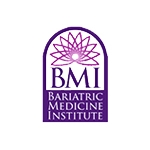Are you significantly overweight or obese? Have you tried diet and exercise changes but failed to lose weight? If you are struggling to lose weight on your own, you may be a good candidate for weight loss surgery. Gastric bypass surgery is the most common type of bariatric surgery. During gastric bypass surgery, the stomach is divided into two parts. Food travels into the smaller, top part and then directly into the small intestine. This limits the amount of food you can eat at any given time, decreasing calorie consumption.
Gastric bypass surgery, like any weight loss surgery, is not for everyone. It also is not a permanent weight loss solution. After surgery, you will still need to make lifestyle changes, like healthy eating and exercising, to successfully lose weight. Like any other surgery, there are significant risks associated with bariatric surgery. So how do you know if you are a good candidate for gastric bypass surgery? Here are a few guidelines:
1. Have you tried and failed to lose weight through diet and exercise?
This is the most important guideline. Before you see a doctor about weight loss surgery, it is critical that you have already tried to lose weight on your own and failed. You may have lost a few pounds through diet and exercise, but you still have significant weight to lose, and it’s not coming off despite your best efforts.
2. Do you have a body mass index of 40 or higher, or an index between 35 and 39.9 and serious health problems?
Weight loss surgery is intended for individuals who are significantly obese or overweight with serious weight-related health complications, such as type-2 Diabetes or high blood pressure. Weight loss surgery is not intended for individuals who just want to slim down or lose 20 pounds.
3. Are you motivated to lose weight and willing to make the changes to do so successfully?
If you are considering weight loss surgery, you may have already adopted a healthier, more active lifestyle. Following surgery, it is critical that you continue to eat right and exercise regularly. If you are not committed to making these changes, or think that after surgery you can continue to hit up the drive-thru each night for dinner, you need to reconsider your weight loss goals. Bariatric surgery is a start, but not a permanent solution.
4. Are you in good mental and physical health?
Weight loss surgery is a serious medical procedure, and may not be safe for individuals with certain medical conditions. These include blood clots, liver disease and kidney stones. In addition, it is important that you are in good mental health. If you struggle with binge eating/purging, depression, substance abuse or anxiety disorders, your healthcare provider may recommend you receive counseling to help deal with these issues before undergoing bariatric surgery.
Only you and your doctor can decide if weight loss surgery, like gastric bypass surgery, is right for you. Gastric bypass surgery is also expensive, and some insurance companies may not cover this operation. Remember, weight loss surgery is not a ‘miracle solution.’ It’s an important step forward on your weight loss journey, but you still need to follow up with lifestyle changes to make this journey a success.


